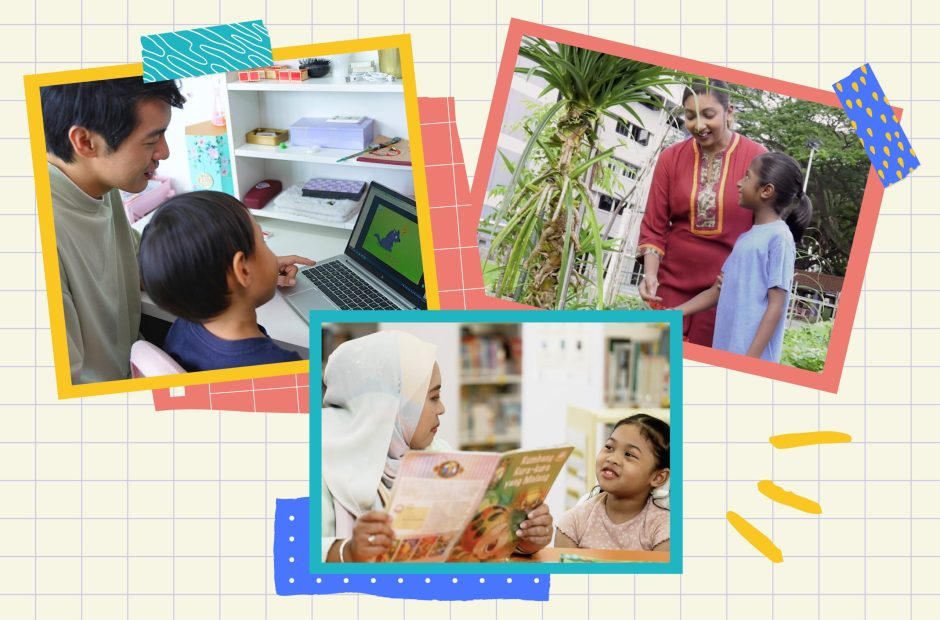1) Give them manageable pocket money
You do want to make sure your child has enough money, but this may cause them more anxiety than it’s worth. Mrs Rabia shares a common sight for her teachers during recess: “My teachers will wait in the canteen, watching the children – and we see them take out their entire wallet and give it to the canteen vendor, saying, ‘Please take the money!’”
As children starting their P1 journey, they have not yet learnt how to count money. Giving your child smaller notes or coins, will help to reduce their anxiety when trying to calculate how much money they should hand over to the vendor and change they should receive. At home, you can also engage them on the different varieties of food available at the canteen and create a plan on what they would like to eat the next day so they do not get overwhelmed.
2) Pack their bags with them
Some parents may pack their child’s bag so as to ensure that their child does not forget certain items and avoid being reprimanded in class. Mrs Rabia thinks that in doing so, these parents may be doing a disservice to their child instead, as the child might not understand how the bag has been packed. “So when the teacher asks him/her to, ‘Take out your English book’, the child may not know how to retrieve it because he/she wasn’t sure where it has been placed and may even panic.” Some children even expect the teachers to take the book out of the bag for them. It is important that parents guide them instead, so they can take charge of their belongings and own their learning.
3) Develop a love of languages in them
With the removal of mid-year examinations at P1, there is now a longer runway for children to explore and enjoy the learning of both English and their Mother Tongue Languages. Mrs Rabia shares that “instead of just learning the words, memorising and regurgitating them, children must be allowed to explore the languages instead. They must start to love the language first.”
In school, this is achieved through activities such as storytelling, dramatisation, watching videos and listening to songs in both languages. You can complement the efforts made in school, at home, when you “play” with these languages with your child. Encourage your child to read books extensively and role model by reading with them daily. You can also encourage them to speak the languages at home, even though they might not be comfortable with it initially. Use positive language to motivate your child to learn.
4) Focus on values first
School is more than learning the academics alone. Focus on building their confidence and self-esteem, taking ownership of their learning, making friends, and learning how to respect and accept others. It is important that we start their journey by focusing on their character and values before we pay attention to their academics.
Check the Pupil Handbook and focus on the same set of values and habits that the school focuses on so that you can complement the efforts of the school, at home. Seek to understand where the school is coming from so that you can better partner the school in your child’s journey.
5) Set up lines of communication with the school
Check with the school how you can communicate with the Form Teacher, Subject Teacher or Year Head, and how homework or information is disseminated to you and your child, so that you can work with the school to keep updated on your child’s progress. The Parents Gateway App or school letters given out by the school will keep you informed of the goings-on in school.



.jpg)


